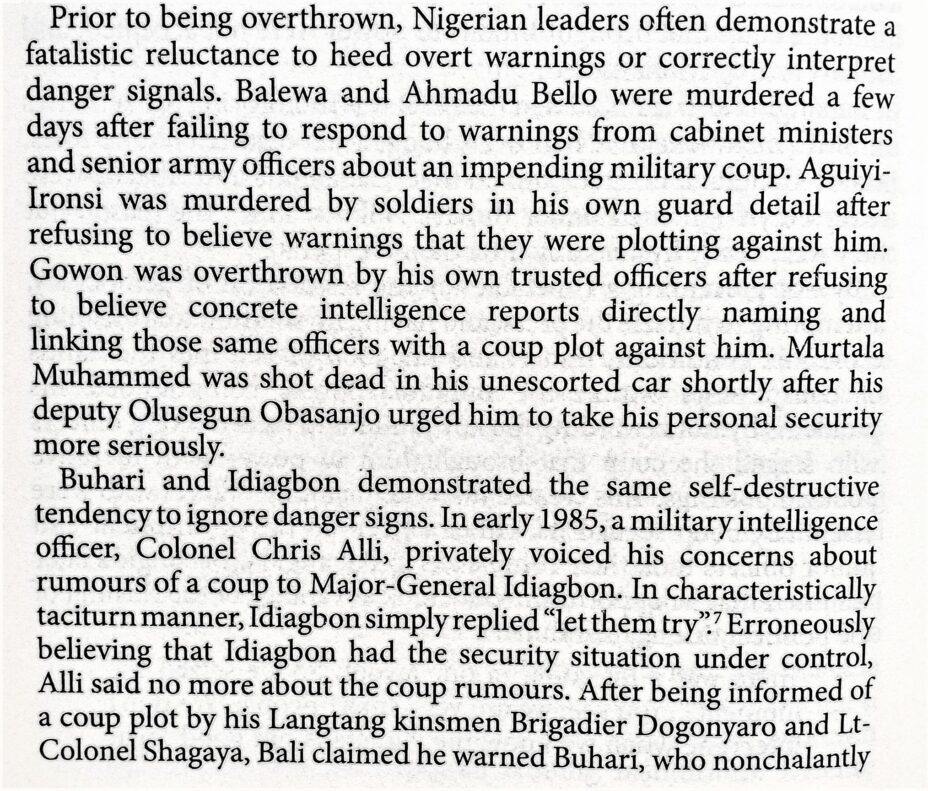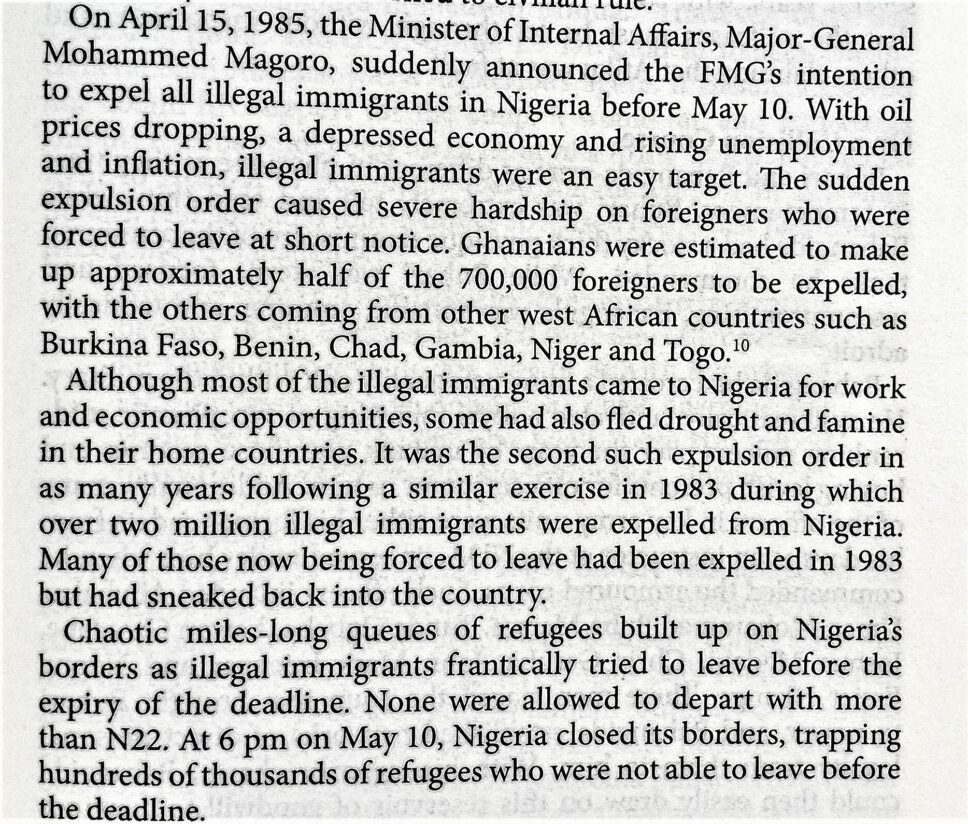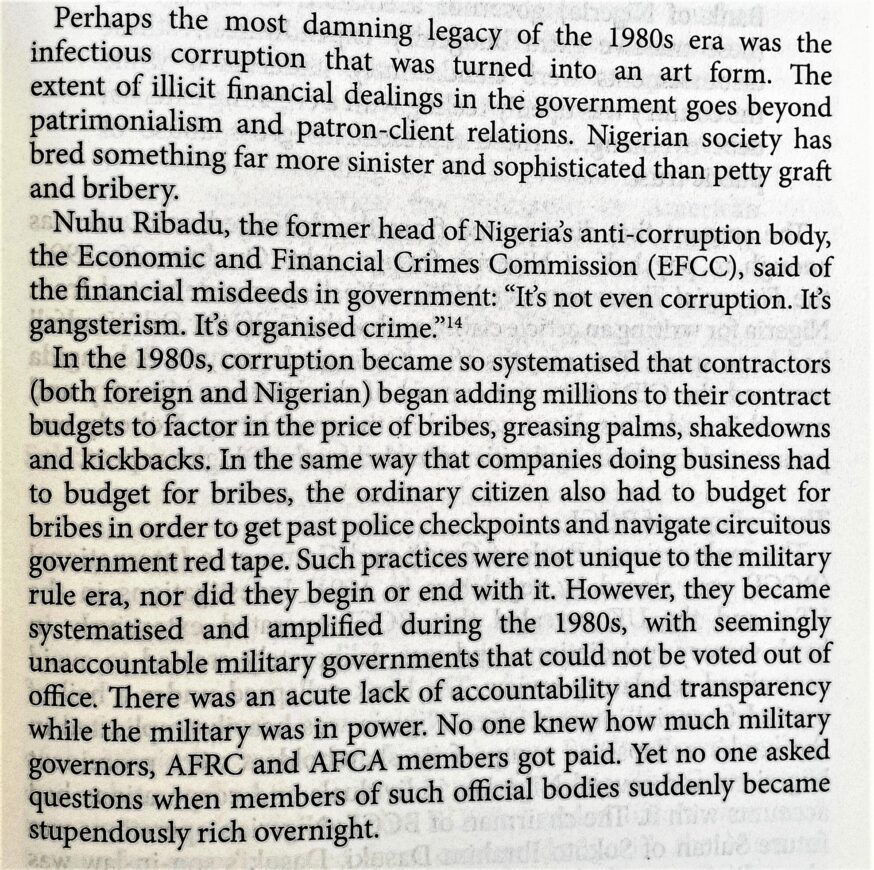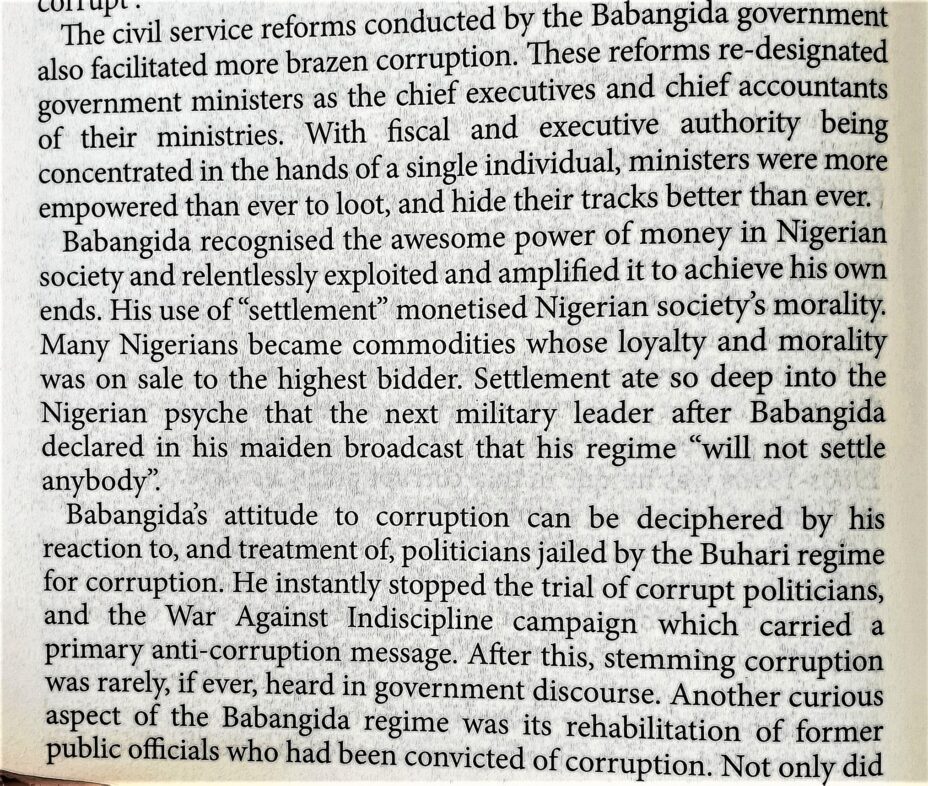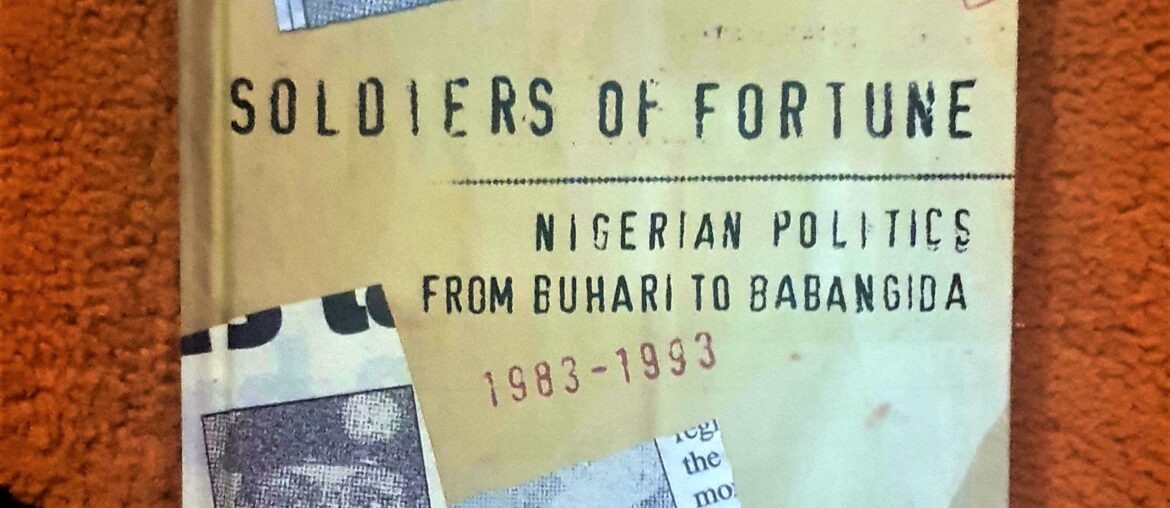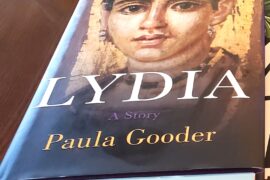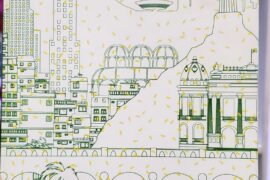The odd thing about randomly picking out TBR lists is that you often pick books that you ordinarily would not choose. Why Soldiers of Fortune falls into that category is that while I loathe reading books about Nigeria, one is often curious to understand the working of a system that is utterly this dysfunctional. Any apprehension I felt before reading it was quickly dispelled within the first few pages of the book.
Max Siollun is a Nigerian historian who has made a deserved name for himself as a thorough chronicler of the Nigerian polity. In this volume, he turns his scholarly and research lights on one of the most despicable periods in a perpetually abysmal political history of the Nigerian state – 1983 to 1993. Three critical junctures of the nation’s history are thoroughly explored; the Buhari military coup in 1983, Babangida’s coup in 1985 and the infamous June 12, 1993 elections.
In very lucid prose and with detailed research, Soldiers of Fortune traces the genesis of the Buhari coup, how it was planned, executed and its cluelessness with the instrument of power. In analysing the present, Max Soillun explores the seeds that were sown in the past of previous coups. It also examines how both 1983 and 1985 coups robbed the military of its collective professionalism. The 1985 coup particularly set the nation back as not only did the military become less professional but the entire polity became debased with the culture of settlement. State funds became a tool for compromising every opposition that stood in the way of Babangida’s aimless rigmarole branded as a transition to democratic rule.
While there have been few personal memoirs by principal actors covering the period under review, objectivity and attention to details is what stands Soldiers of Fortune out. The book holds a mirror to the Nigerian polity and the revelation is depressing. Some of the distrust that the populace currently experience is an aftereffect of the dashed hopes and futile transitional journeys that the military governments of this period embarked.
For me, the biggest revelation I got out of Soldiers of Fortune is how it demystified Babangida. Often portrayed as this political genius, the book lays bare the fact that he was a schemer who was adept at using state resources to compromise almost everyone to his side as he embarked on an endless transition programme that was just designed to massage his ego while delivering little or nothing of value to the polity. He used state funds to compromise soldiers in a bit to address his security phobia for counter coups. One is shocked at how Babangida got away with all that he got away with and for so long – there was nothing statemanly about his leadership. He valued his fraternal relationships with his fellow coup plotters over the good of the nation and had a morbid fear (and indebtedness) for Abacha led him to be indecisive in the face of the June 12 crisis.
Above all else, Soldiers of Fortune is a piece of well-researched history that reminds us of the evil and pointlessness of military rule. It also highlights that none of these principal actors can whitewash their pasts. The evidence is well documented.
3.8/5
